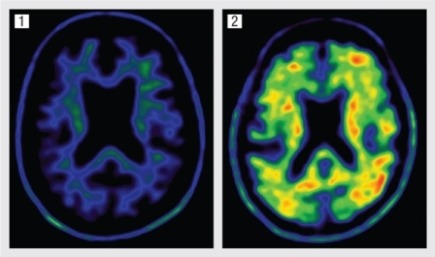Alzheimer’s disease can be delayed through lifestyle: New, large study joins growing chorus
 –
–
Hard Evidence We Can Slow Alzheimer’s By Exercising The Body And The Mind (Forbes):
“Alzheimer’s disease is one of the most feared diagnoses among patients…once the disease has been diagnosed, there is nothing modern medicine can do to stop it.
But it can be slowed, and a new study presented by researchers at the Karolinska Institut in Sweden gives some of the strongest evidence yet as to how: through physical exercise, through mental exercises and social interaction, by eating a healthy diet rich in fruits and vegetables, and by monitoring the same risk factors that lead to cardiovascular disease.
The Finnish Geriatric Intervention Study to Prevent Cognitive Impairment and Disability (somehow abbreviated FINGER) followed 1,260 patients in Finland who were at high risk of dementia and had cognitive performance that was either average for their age or worse for two years. They were randomly assigned into two groups. One, a control group, received the best medical advice available and regular cognitive testing. The other group got a battery of interventions. Among the treatments:
- Seven group sessions and three individual sessions to help them improve their nutrition, focusing on adding fruits, vegetables, and fish, and avoiding saturated fats;
- Intensive exercise. Starting at three months into the study, they did muscle-building exercise once or twice a week and cardiovascular training two to four times a week. The weight training continued throughout the study, and the cardio ramped up to five or six times per week.
- They did cognitive training exercises. These were done in 11 group sessions over the course of the study, along with lots of independent training.
- To track heart disease risks like high blood pressure and high cholesterol, they saw a nurse every three months, with three visits to a physician over three years.
…after two years of treatment, there was a statistically significant overall benefit.”
Study: Future directions in Alzheimer’s disease from risk factors to prevention (Biochemical pharmacology)
- Abstract: The increase in life expectancy has resulted in a high occurrence of dementia and Alzheimer’s disease (AD). Research on AD has undergone a paradigm shift from viewing it as a disease of old age to taking a life course perspective. Several vascular, lifestyle, psychological and genetic risk factors influencing this latent period have been recognized and they may act both independently and by potentiating each other. These risk factors have consequently been used to derive risk scores for predicting the likelihood of dementia. Despite population differences, age, low education and vascular risk factors were identified as key factors in all scoring systems. Risk scores can help to identify high-risk individuals who might benefit from different interventions…Thus, the focus of dementia research has shifted from identification of potential risk factors to using this information for developing interventions to prevent or delay the onset of dementia as well as identifying special high-risk populations who could be targeted in intervention trials.
Read more:


